One Health Seminar Series
The One Health seminar series showcases the depth and breadth of One Health research at the University of Guelph, and beyond! These 50-minute talks feature a 30-minute presentation by a One Health practitioner, followed by an audience Q&A. Everyone is welcome, particularly graduate students and faculty.
Seminars are hybrid.
If you’re attending virtually: registration is required
If you’re attending in person: registration is encouraged, to help us avoid food waste
The OHI Seminar Series will be back in Fall ’25!
In the meantime, you can catch up on our past talks by watching the videos, linked below.
Past Seminars
Check out our past seminars, organized by semester, below. Many seminars are available to view on our YouTube channel.
WINTER 2025
April 9, 2025 | 12:30-1:20 PM | Watch the seminar!

Whitney Preisser
“Using historical ecology to measure the impacts of anthropogenic disturbances on parasitic diseases of fish”
Assistant Professor of Disease Ecology
Kennesaw State University | Georgia, USA
Seminar Summary: In this talk, I’ll discuss two projects using fluid-preserved specimens to determine the impacts of climate change, heavy metal pollution, microplastics, and reservoir damming on parasitic diseases of fish over long time spans. First, using more than 600 marine fish specimens collected between 1880 and 2019 in the Salish Sea, we tracked changes in parasite communities over time and investigated the potential for heavy metal pollution and sea surface temperature to have caused the observed changes. Second, using over 500 freshwater fish collected between 1999 and 2016 in Georgia, we’re exploring the effects of reservoir damming on the diversity and abundance of parasitic infections. Using a subset of those fish, we’re also quantifying the prevalence of microplastics and nanoplastics in digestive tracts and searching for links between plastics and parasites.
About Whitney Preisser: I am an assistant professor of disease ecology at Kennesaw State University. My research program explores the ecology and biogeography of parasitic diseases of wildlife. I use literature sources, field collections, and natural history collections to investigate the spatial and temporal distributions of parasitic diseases, and I seek to understand how the environment, hosts, and anthropogenic disturbances shape these patterns.
Learn more about Dr. Preisser and her research on her lab page, and KSU faculty profile!
March 26, 2025 | 12:30-1:30 PM | Watch the seminar!

Ricardo Ramirez
“How can evaluation contribute to One Health?“
Independent Researcher & Consultant | Guelph, ON
Adjunct Professor | School of Environmental Design and Rural Development
University of Guelph
Seminar summary: This seminar will bring together two solitudes: multi-stakeholder platforms, and utilization-focused evaluation.
In recent years, the field of program evaluation has shifted attention from the conventional and dominant focus on accountability (verifying outcomes) to striking a balance with learning-oriented evaluation. The more recent learning-focused approaches are collaborative, process-oriented, and in tune with systems change. The articulation of One Health in practice requires multiple stakeholders to come together to agree on collaborative action. These gatherings have multiple names (living labs, multi-stakeholder platforms, etc.) with different areas of emphasis (collaboration, experimentation, innovation). Regardless, these organizational arrangements require that individuals step out of their workplace boundaries; sometimes for a single workshop, other times for extended periods under formalized consortia. As with any project or pilot initiative, those involved in these collaboration spaces soon come up with questions. How do we know whether this is working? Who else needs to be here? On what basis do we keep investing in this effort? How will we know when we ‘get there’? The answer lies in Utilization-Focused and Developmental Evaluation: a decision-making framework for collaborative design of evaluation.
About Ricardo Ramirez: Ricardo Ramirez is an independent researcher and consultant who works both internationally and in Canada. He was born and raised in Mexico and came to Guelph to study agriculture (and met a landscape architecture student to whom he remains happily married).
His first job after university was to build a demonstration farm in northern Colombia. He quickly realized that he had to unlearn much of the crop science from university and engage with subsistence farmers in participatory learning. He used graphic illustration as a way to learn and reflect with farmers (so keep an eye out for some drawings in the presentation today). Those experiences awoke an interest in adult education. His masters research took him to work with NGOs in Latin America and the Caribbean involved in sustainable agriculture and rural development. Later he worked with the Food and Agriculture Organization of the UN in Rome, and with a think-tank on sustainable agriculture in the Netherlands. In 1997 he and his family settled back in Guelph.
He holds a PhD in Inter-disciplinary Rural Studies, also from Guelph, which led to over a decade of work with Indigenous organization in NW Ontario. He is a Credentialed Evaluator with the Canadian Evaluation Society, and Adjunct Professor in Capacity Development and Extension at the School of Environmental Design and Rural Development, University of Guelph.
Locally, he is on the Boards of the Guelph Renewable Energy Co-operative; and the Ecological Farmers Association of Ontario.
For the last few years, he has focused on two areas: evaluation consultancies, and evaluation capacity building.
March 5, 2025 | 12:30-1:20 PM EST | Watch the seminar!

Dan Kraus
“Common ground conservation: Can One Health approaches reverse the loss of biodiversity?“
Conservation Scientist
About Dan Kraus: Dan is a conservation scientist with over 30 years of experience across public, private, and non-governmental sectors, including Senior Conservation Biologist for the Nature Conservancy of Canada and Director of National Conservation for Wildlife Conservation Society Canada. Dan currently serves on the IUCN Species Survival Commission and Canada’s Nature Advisory Committee. He also served for over a decade as a member and Deputy Chair of Ontario’s Committee on the Status of Species at Risk and was a founding board member of the Ontario Invasive Plant Council. Passionate about making conservation science accessible, Dan’s editorials, articles, and interviews have been featured in media across Canada. He currently conducts research and teaches about conservation at the University of Waterloo, works as a consultant for government and industry on projects focused on transformative approaches to biodiversity conservation, and serves on the One Health program advisory board at the University of Guelph. Dan lives with his family at the headwaters of Bronte Creek in the Lake Ontario watershed just east of Guelph where he enjoys chopping wood and raising happy chickens.
Summary: Canada is one of 196 countries committed to reversing the loss of nature through the Global Biodiversity Framework. Implementing the framework to solve complex challenges will require innovative solutions, new approaches, and unexpected alliances. Dan will share insights into the current state of nature conservation in Canada, including the country’s new 2030 Nature Strategy. He will also explore successful conservation collaborations, emphasize the critical role of listening and trust, and discuss how adopting One Health approaches can lead to better outcomes for both nature and people.
January 22, 2025 | 12:30-1:20 PM EST | Watch the seminar!

Kieran O’Doherty
“Microbiome Stewardship and One Health”
Professor in Applied Social Psychology, Department of Psychology
College of Social & Applied Human Sciences, University of Guelph
Lab website
Presentation Description: Microbiomes are essential for human, animal, plant, and ecosystem health. Despite widespread recognition of the importance of microbiomes, there is little attention to monitoring and safeguarding microbial ecologies on policy levels. Evidence is accumulating that microbiomes are deteriorating owing to practices at societal levels, such as pesticide use in agriculture, air and water pollution, and overuse of antibiotics. Potential policy on these issues would cross multiple policy domains, such as public health, environment, agriculture and more. What is needed is a concept that can act as a foundation for safeguarding microbial ecologies for healthy people, animals, and environments across diverse policy domains. In this presentation I introduce the notion of microbiome stewardship to serve in this capacity. I examine challenges to be addressed and steps to take toward developing meaningful microbiome stewardship.
Kieran C. O’Doherty is professor in the department of psychology at the University of Guelph, where he directs the Discourse, Science, Publics research Group. His research focuses on the social and ethical implications of science and technology. In this context, he has published on such topics as data governance, vaccines, human tissue biobanks, salmon genomics, and genetic testing. A particular emphasis of his research has been on the social and ethical aspects of human microbiome research. Kieran’s research also emphasizes public deliberation on science and technology. In this regard, he has designed and implemented deliberative forums in which members of the public engage in in-depth discussion about ethical aspects of science and technology and collectively develop recommendations for policy. Recent edited volumes include Psychological Studies of Science and Technology (2019) and The Sage Handbook of Applied Social Psychology (2019). Kieran’s research has been funded by the Canadian Institutes of Health Research, The Office of the Privacy Commissioner of Canada, the Ontario Ministry of Research & Innovation, Genome Canada and Genome British Columbia. He is outgoing editor of Theory & Psychology and president-elect of the International Society for Theoretical Psychology.
FALL 2024
December 4, 2024 | 12:30-1:20 PM | Watch the talk!

Natalia Cediel Becerra
“Mapping One Health Initiatives in Latin America”
Associate Professor and Researcher, Universidad de La Salle (Colombia)
Presentation Description: Mapping One Health (OH) initiatives and stakeholders in Latin America is a key first step in the Pan American Health Organization’s (PAHO) One Health policy.
International agencies such as PAHO and the Inter-American Institute for Cooperation on Agriculture (IICA) have strengthened the capacity of many countries around the prevention of zoonoses for more than 6 decades, creating a good baseline for OH implementation. There are many existing OH initiatives already in place in Latin countries within the public and private sectors, including within non-governmental organizations (NGOs).
In July 2022, public health and agricultural defense authorities from countries in the Americas met in Brazil to develop a regional baseline regarding the use of the One Health approach in intersectoral actions, with an eye towards improving management of public health problems at the human-animal-environment interface. Myriad examples of multisectoral communication, collaboration, coordination and capacity building regarding control and prevention of zoonoses control, food safety, and AMR programs were discussed. Interestingly, most of these initiatives were not identified as One Health.
There is already installed capacity for multisectoral cooperation mechanisms that should be strengthened to better face future health emergencies. Mapping stakeholders and initiatives lays the groundwork for OH implementation in Latin America and is a best practice for OH governance.
About Natalia Cediel Becerra: Dr. Natalia Cediel Becerra has 17 years of experience working in multi-disciplinary health teams and intercultural workplaces. She is an Associate Professor and Researcher at Universidad de La Salle, Colombia, and holds a MSc Public Health (Colombian National University) and a PhD Veterinary Sciences (Università degli Studi di Torino, Italy). Her current project is entitled “Co-creation of a capacity building program to develop socio-ecological resilience, gender equity and economic empowerment in rural families of Villa de Leyva, Boyacá”.
Dr. Cediel Becerra is an advisor and mentor for the Colombian National Health Institute for the Frontline course of the field epidemiology training program (FETP) on One Health, and co-editor of the CABI One Health journal on One Health, Gender and Feminism. She co-founded the Biodiversity and One Health community of practice, a multidisciplinary group created to advocate for the inclusion of One health approach in the National Biodiversity Strategies and Action
November 20, 2024 | 12:30-1:20 PM | Watch the talk!

Wayne Caldwell
Rural Planning, Agriculture, and One Health: A Career in Sustainable Development
College Professor Emeritus | Associated Graduate Faculty
School of Environmental Design and Rural Development, University of Guelph
nguished career in rural planning, agricultural preservation, and sustainable development, with a particular focus on his work in promoting healthy rural communities. Dr. Caldwell will explore the connections between rural health, sustainable communities, and environmental planning, highlighting insights from his work, including the Healthy Rural Communities Toolkit. This seminar will emphasize the role of integrated planning in supporting resilient rural systems and its alignment with the One Health approach. A 30-minute presentation will be followed by a 20-minute Q&A, offering students and faculty the opportunity to engage with his contributions and their implications for One Health.
About Wayne Caldwell: Wayne Caldwell, Ph.D., RPP, FCIP, is Professor Emeritus in Rural Planning in the School of Environmental Design and Rural Development at the University of Guelph. Over the course of his career, he has held various interim leadership roles, including Dean of the Ontario Agricultural College and Associate Vice-President Research at the university. His research and professional interests center around planning for agriculture, farmland preservation, the development of healthy rural communities, and fostering community-based approaches to both economic and environmental challenges.
Dr. Caldwell is a widely published author and editor, contributing to numerous books and publications that address key issues in rural planning, land use, and sustainable development. His work has shaped policies and strategies that promote rural resilience and the protection of agricultural resources. In addition to his academic contributions, he has played a leadership role in many organizations. Notably, he has served as President of the Ontario Professional Planners Institute, where he advocated for planning policies that align with sustainable rural development. His leadership has also extended to several other local, provincial, and national bodies, where he has helped guide discussions on rural and environmental planning.
November 13, 2024 | 12:30-1:20 PM | Watch the talk!

Marsha Hinds Myrie
“Breaking knowledge hegemony through transdisciplinary research practice”
Educational Developer, Anti-Oppressive and Inclusive Pedagogies | Office of Teaching and Learning, University of Guelph
Activist-in-Residence Emerita, University of Guelph
About Marcia Hinds Myrie: Marsha Hinds Myrie’s life and work are an embodiment of dualities and intersections. She is a Barbadian/Canadian citizen with an ancestral, cultural, and intellectual home in Africa. Her career unfolds, sometimes spectacularly and sometimes confusingly, at the intersections of activism and education. She is a public intellectual steeped in the Caribbean intellectual tradition and critical studies.
Marsha spent 23 years developing an advocacy model to address the issues of underprivileged groups of women in Barbados and the Commonwealth Caribbean. The major focus of the work is to develop and encourage the use of victim-defined services for women and girls affected by various types of gender-based violence while at the same time removing the burden of eradicating violence from women and victims by forcing greater attention to systemic oppression and a stronger lobby in policy spaces.
October 23, 2024 | 12:30-1:20 PM | Watch the talk!

Faisal Moola
“Indigenous food sovereignty and the stewardship of “berried” landscapes”
Associate Professor, Master of Conservation Leadership Coordinator
Department of Geography, Environment & Geomatics | College of Social and Applied Human Sciences, University of Guelph
Summary: Over 200 different plant species native to Canada produce small, fleshy wild fruits. Although commonly described as wild berries, these fruit-producing plants belong to a diversity of botanical classes, including drupes (e.g., cherries, elderberries), pomes (e.g., saskatoon berries), aggregate fruits (e.g., raspberries, strawberries) and true wild berries (e.g., blueberries and cranberries). All types of berries have been an important part of the traditional diet of Indigenous Peoples, especially in northern forest regions, where several varieties including blueberries, partridge berries, cranberries, and other berry-producing plants, grow well in the acidic and nutrient-poor soils. Berries have immense material, social, psychological significance including subsistence and medicinal value to Indigenous Peoples in Canada and globally. Being dense in nutrients not regularly available, such as vitamin C and carbohydrates, berries remain a staple of many Indigenous People’s diets. They are eaten both fresh and dried as well as processed into a variety of foodstuffs, including prepared as juice, tea, and other beverages, made into preserves and fruit leathers or added whole to soups, stews, bannock, muffins and other baking and mixed with fat, blubber or fish to make “Inuit ice cream”. This presentation will review the importance of wild berries to the food sovereignty of Indigenous People in Canada and globally, the threats to their ecological and cultural integrity from climate change and extractivist capitalist resource development and how Indigenous Peoples are advancing their own forms of conservation governance for the stewardship of this important cultural keystone food species.
September 25, 2024 | 12:30-1:20 PM

David McCarthy
“Using a One Health Approach to Understanding and Mitigating Risks to Swimmers“
Canada Excellence Research Chair (CERC) in Waterborne Pathogens: Surveillance, Prediction, and Mitigation
School of Environmental Sciences | Ontario Agricultural College | University of Guelph
David McCarthy leads a multidisciplinary team of researchers from the College of Engineering and Physical Sciences (CEPS), the Ontario Agricultural College (OAC) and the Ontario Veterinary College (OVC). The team aims to understand how pathogens from human and animal waste move through urban water cycles, how they interact with humans and how to reduce the health risks they pose.
To do this, McCarthy’s lab is developing novel technologies to detect pathogens and their sources in near real-time, designing a “lab-on-a-chip” device to enable pathogen detection in the field, and modelling how humans interact with sources of contamination and reduce pathogen loads in the environment. McCarthy’s team emphasizes solutions that are easy to use, low cost, open source and open hardware, to encourage and enable their use in all parts of the globe.
WINTER 2024
February 8, 2024 | 2:30-3:50 PM | Watch the seminar!
Marie Meloche | Director, Jane Goodall Institute of Canada
“Community-centered conservation and One Health in action: the Jane Goodall Institute’s work”
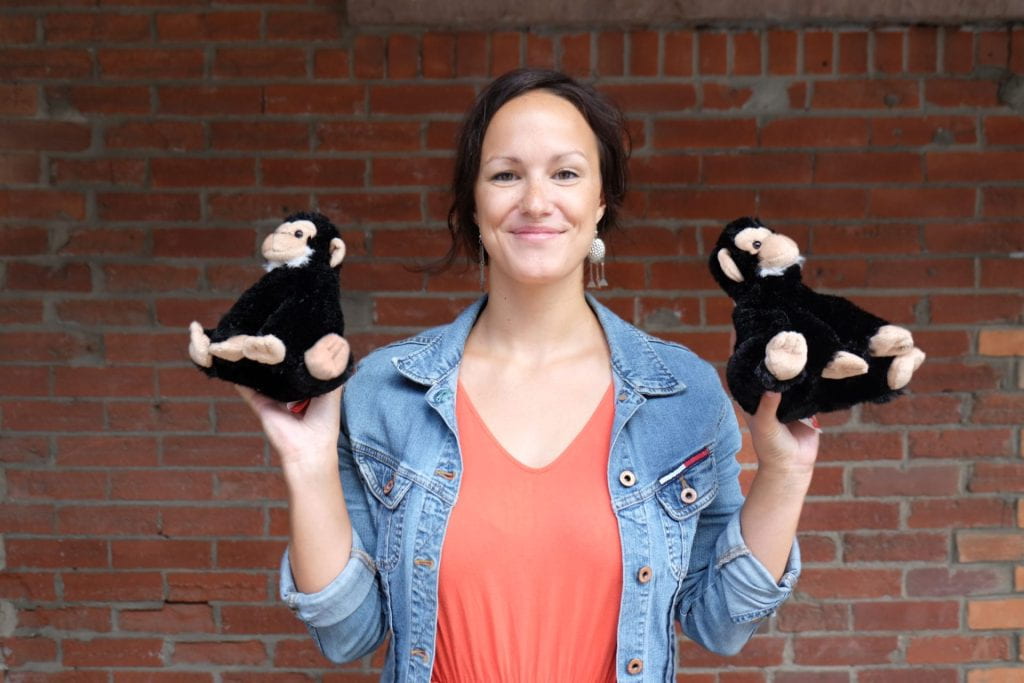
Marie Meloche has worked with grassroots organizations, local and international NGOs in Canada and the Middle East before joining the JGI team in 2018. As the Programs Manager, she supports the implementation of community-centered conservation projects in Africa and Canada. She believes that the key to sustainable development is to build meaningful partnerships with communities and local actors, with women at the center of the locally-led development strategies.
In collaboration with the Guelph Institute of Development Studies (GIDS) and the Canada India Research Centre for Learning and Engagement (CIRCLE), OHI is delighted to welcome Dr. Andrew Flachs.
February 6, 2024 | 1:30-3:00 PM EST | Watch the seminar!
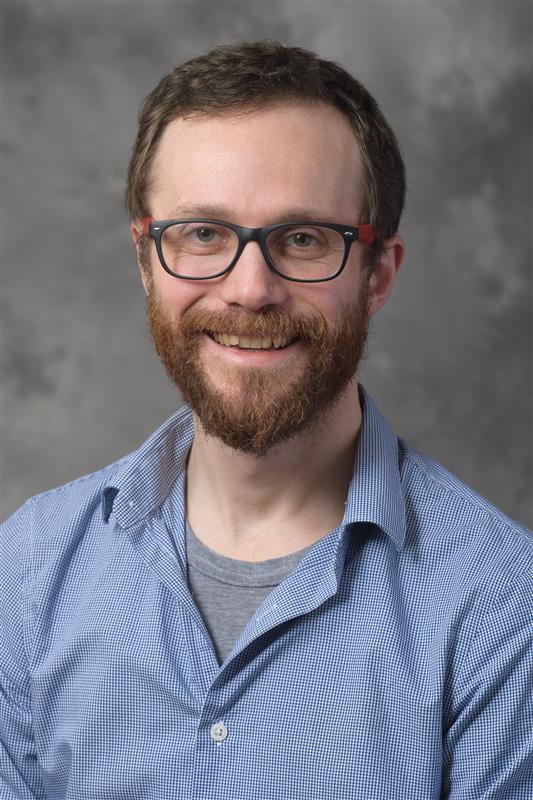
Andrew Flachs
Social Reproduction and One Health on the Farm: Feeding the World as if People Mattered
Associate Professor // Anthropology Faculty
Affiliated Faculty // Global Studies // SIS
College of Liberal Arts | Purdue University
Talk Summary: Although farms are living spaces that anchor diverse economies, the challenge of feeding the world is dominated by narrow questions of yield, efficiency, and cost-benefit analysis. Combining streams from world ecology, critical agrarian studies, and diverse economies thinkers, Flachs will discuss anthropological case studies from India, Bosnia, and the U.S. Midwest to ask how small-scale agriculture supports living communities in place: feeding the world as if people mattered. Central to this approach is viewing efficiency not as a function of yields, profits, or commodities produced but of reproducing the conditions for local health and wellbeing. The talk will center small-scale agriculture as an engine of social reproduction, the continual creation of communities of practice. This analysis both helps to re-value the rippling benefits of local farm systems and illuminate the profound damage of commercial plantations that emphasize commodity production.
Biography: Dr. Andrew Flachs researches food and agriculture systems, exploring genetically modified crops, heirloom seeds, and our own microbiomes. He is currently an associate professor of anthropology at Purdue University where his work among farmers in North America, the Balkans, and South India asks how we shape and are shaped by the worlds around us. Andrew’s research has been supported by the National Geographic Society, the American Institute of Indian Studies, the Social Sciences and Humanities Research Council, and the US department of education, while his writing on agricultural development has been featured in over three dozen peer-reviewed publications as well as public venues including Sapiens, Salon, and the National Geographic magazine. Andrew’s work has been recognized by several international awards, including most recently as a finalist for the Society for Economic Anthropology Kate Browne Creativity in Research Award and the International Convention of Asia Scholars’ Book Prize. Outside of academia, he is an avid cook, parent, cyclist, and musician who has performed in New York City, St. Louis, Asheville, and the San Francisco Bay Area.
FALL 2023
November 15, 2023 | 12:30-1:20 PM EST
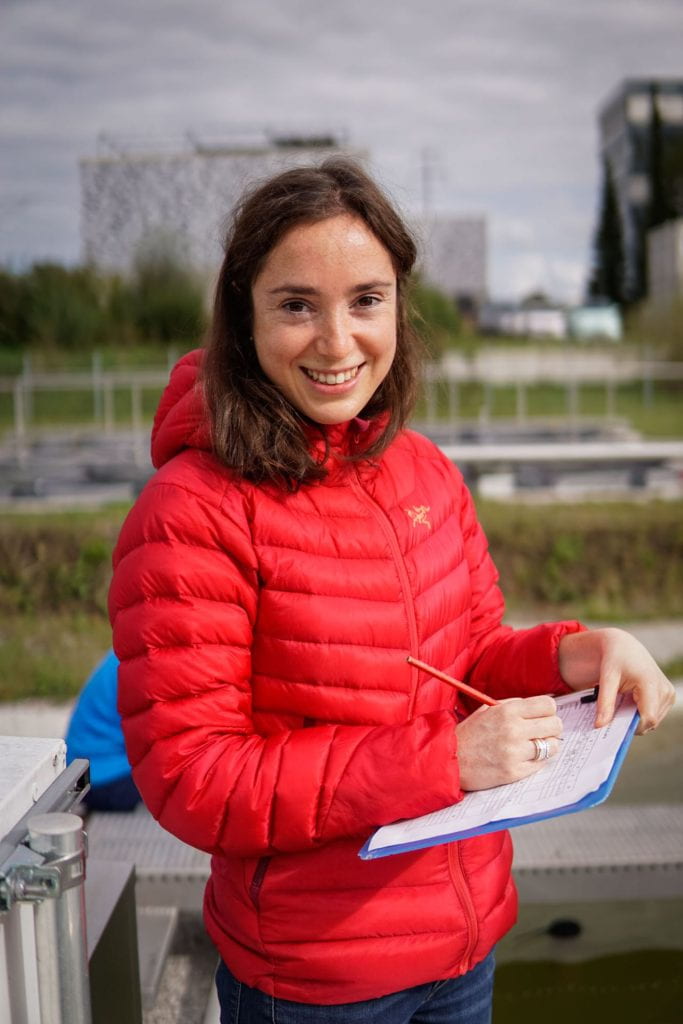
Joey Bernhardt
Towards a mechanistic understanding of global change: from cells to ecosystems and human well-being
Assistant Professor | Department of Integrative Biology
College of Biological Sciences | University of Guelph
October 4, 2023 | 12:30-1:20 PM EST | Watch the talk!
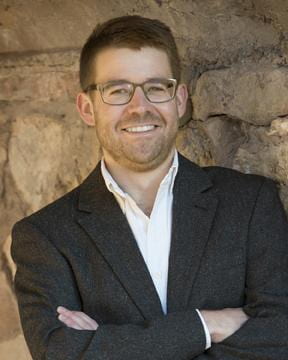
Joshua August (Gus) Skorburg
Philosophical Perspectives on One Health
Assistant Professor | Department of Philosophy
Co-Academic Director | Centre for Advancing Responsible and Ethical Artificial Intelligence (CARE-AI)
Affiliate Faculty | One Health Institute
College of Arts | University of Guelph
October 18, 2023 | 12:30-1:20 PM EST
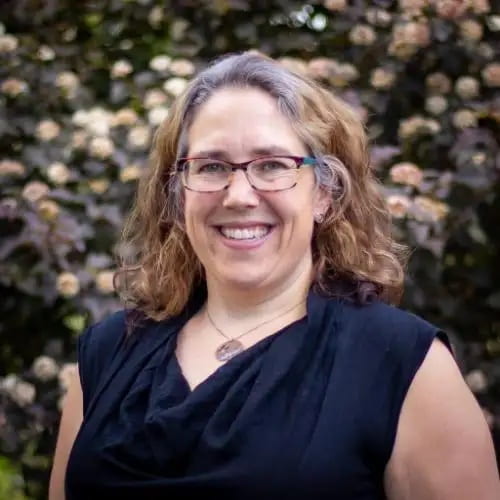
Leah Levac
Lived expertise and intervening on the consequences of resource extraction*
Associate Professor | Department of Political Science
Affiliate Faculty | One Health Institute
College of Social & Applied Human Sciences | University of Guelph
*Public recording of this talk is not available.
November 1, 2023 | 12:00-12:50 PM EST
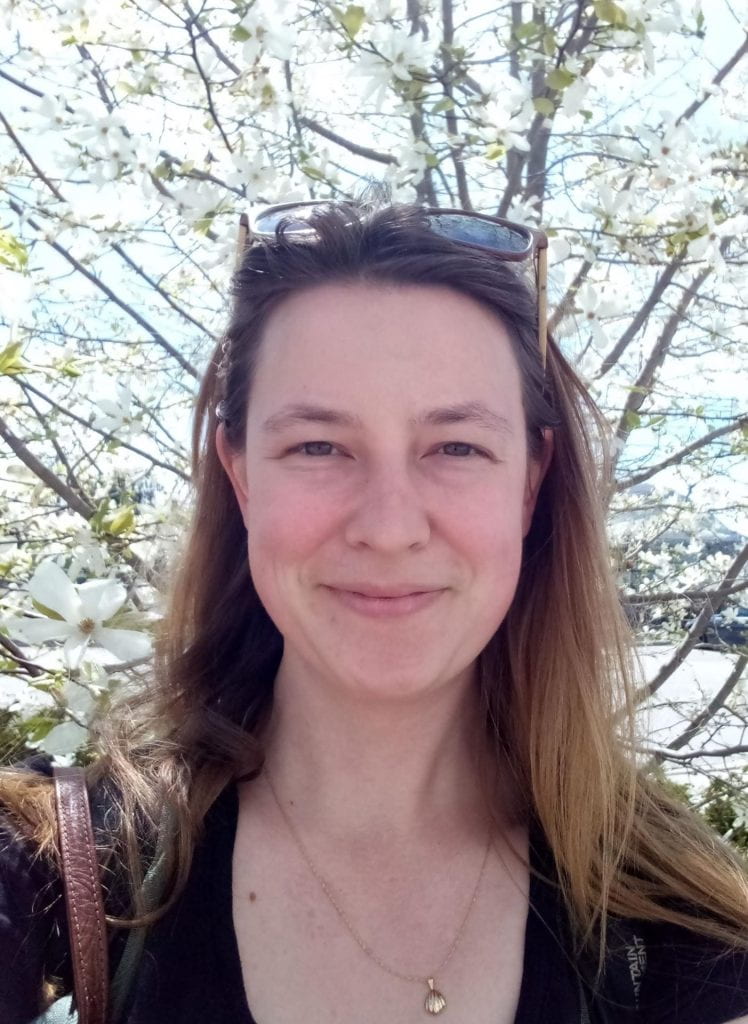
Liane Miedema
Anthropogenic impacts on environmental systems*
Ph.D. Candidate | School of Environmental Sciences
Ontario Agricultural College | University of Guelph
Liane Miedema is a PhD candidate at the University of Guelph, researching landscape ecology, with a focus on the effects of land mosaics on forest communities, plant functional traits and human-environment interactions. She seeks to find new ways to uncover the connections between living things and their surroundings—both through her research as well as through art and other forms of interdisciplinary work.
Seminar description: Our society is inseparable from the environment, whether it’s the planetary level impact of greenhouse gas emissions on climate change or the local impact of Toronto’s urban expansion on forest biodiversity. This talk introduces three different scales of anthropogenic impacts on the environment and the implications of the increasingly complicated interface between human society and natural systems.
*Public recording of this talk is not available.
WINTER 2023
February 8, 2023 | 1:00-1:50 PM EST | Watch the talk!
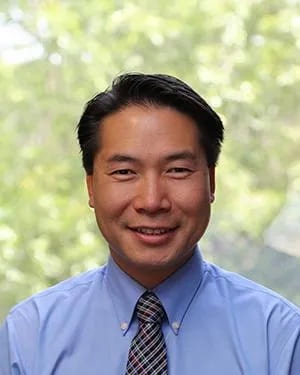
David Ma
Ongoing learnings from the Guelph Family Health Study and One Health Perspectives: Intersection between families, environment and animals
Professor | Human Health & Nutritional Sciences
College of Biological Science | University of Guelph
Summary: The Guelph Family Health Study is a longitudinal family cohort study launched in 2014 in the City of Guelph and surrounding communities. Our cohort study has grown to include over 300+ families and through community engaged research has helped us to learn about lifestyle factors that contribute to health. Also, it has grown to help us conduct One Health research at the intersection of families, environment and animals. Research findings focused on lifestyle factors, food waste and pet interactions will be highlighted.
March 29, 2023 | 1:30-2:20 PM EST | Watch the talk!
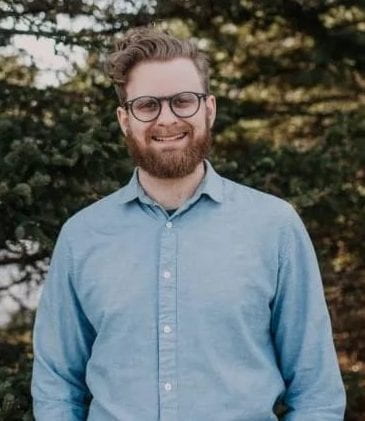
Quinn Webber
Caribou Conservation and One Health in Canada
Assistant Professor | Department of Integrative Biology
College of Biological Science | University of Guelph
Summary: Caribou are an iconic Canadian species, but their populations are in decline throughout Canada. Anthropogenic disturbance, environmental degradation, and climate change are among the most important drivers of declines. While caribou conservation and management practices in Canada are varied, taking a One Health approach to tackling complex conservation problems could help improve resiliency of caribou populations.
FALL 2022
September 21, 2022 | 12:30-1:20 PM EST | Watch the talk!
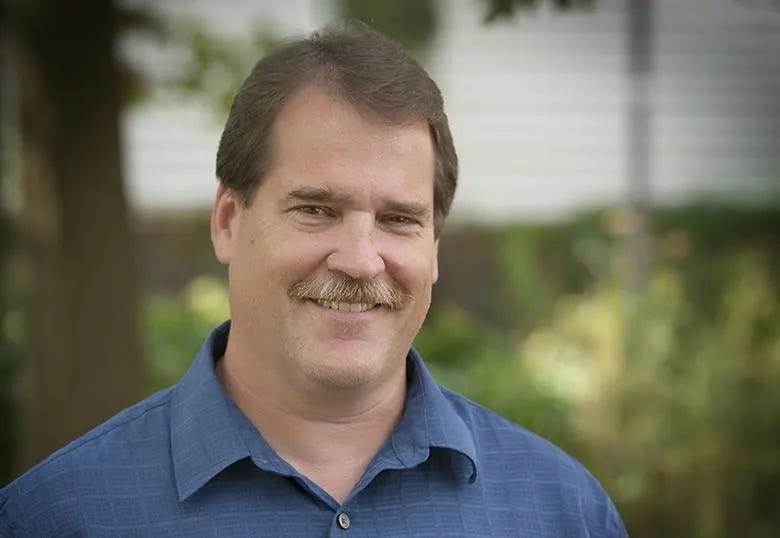
Paul Sibley
One Health Aspects of Harmful Algal Blooms
Professor | School of Environmental Sciences
Ontario Agricultural College | University of Guelph
October 5, 2022 | 12:30-1:20 PM EST | Watch the talk!

Katie Clow
Ticks, Tick-borne Disease and One Health
Assistant Professor in One Health | Department of Population Medicine
Graduate Program Coordinator | Collaborative Specialization in One Health
Ontario Veterinary College | University of Guelph
October 19, 2022 | 12:30-1:20 PM EST | Watch the talk!

Andrew MacDougall
One Health and Food Web Assembly
Professor | Department of Integrative Biology
College of Biological Science | University of Guelph
November 2, 2022 | 12:30-1:20 PM EST | Watch the talk!
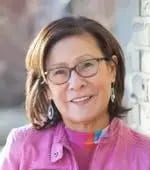
Diana Lewis
Developing an Indigenous-led Approach to Environmental Health Risk Assessment
Assistant Professor | Department of Geography, Environment & Geomatics
College of Social and Applied Human Sciences | University of Guelph
November 16, 2022 | 12:30-1:20 PM EST | Watch the talk!
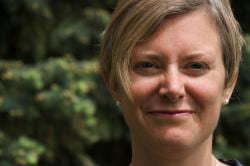
Catherine Carstairs & Kathryn Hughes
Vaccine hesitancy/resistance in Canada from the early 1980s to the early 21st century
Professor | Department of History
College of Arts | University of Guelph
WINTER 2022
January 13, 2022 | 1-2 PM EST | Watch the talk!
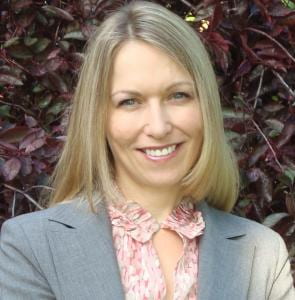
Sherri Cox
The Role of Wildlife Rehabilitation in One Health
Assistant Professor | Integrative Biology | University of Guelph
Wildlife Veterinarian and Medical Director at National Wildlife Centre
January 27, 2022 | 1-2 PM EST | Watch the Talk!
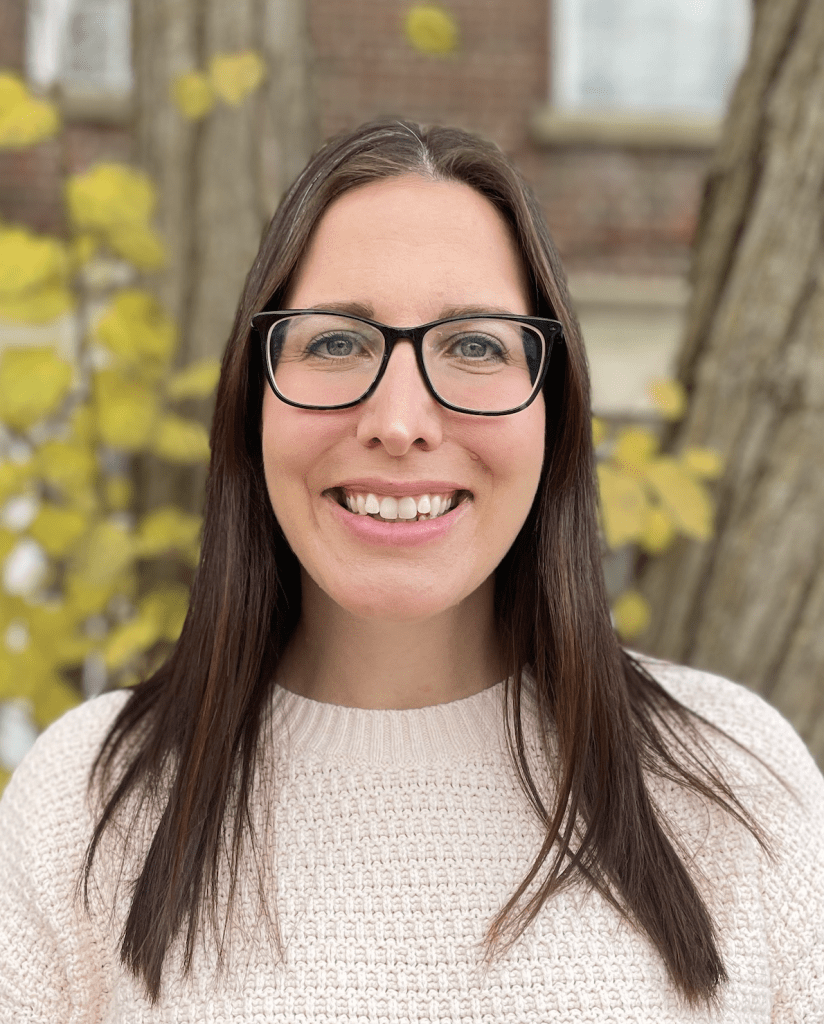
Lauren Grant
One Health and Social Environments: Linking Non-health Data to Improve Health (and Why It Can be Difficult)
Assistant Professor | Department of Population Medicine
Ontario Veterinary College | University of Guelph
February 10, 2022 | 1-2 PM EST | Watch the talk!
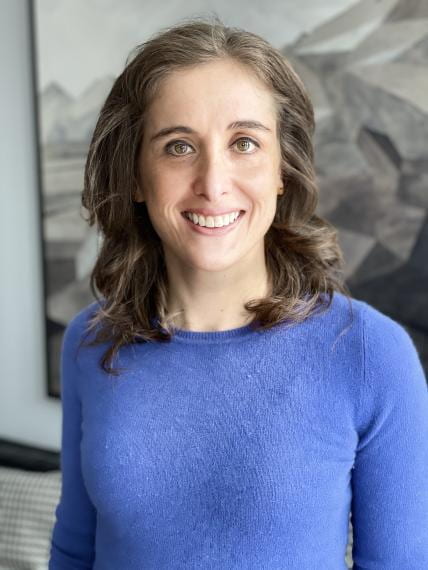
Maya Goldenberg
Vaccine Hesitancy: Science, Publics & Democracy
Associate Professor | Department of Philosophy
College of Arts | University of Guelph
March 3, 2022 | 1-2 PM EST | Watch the talk!
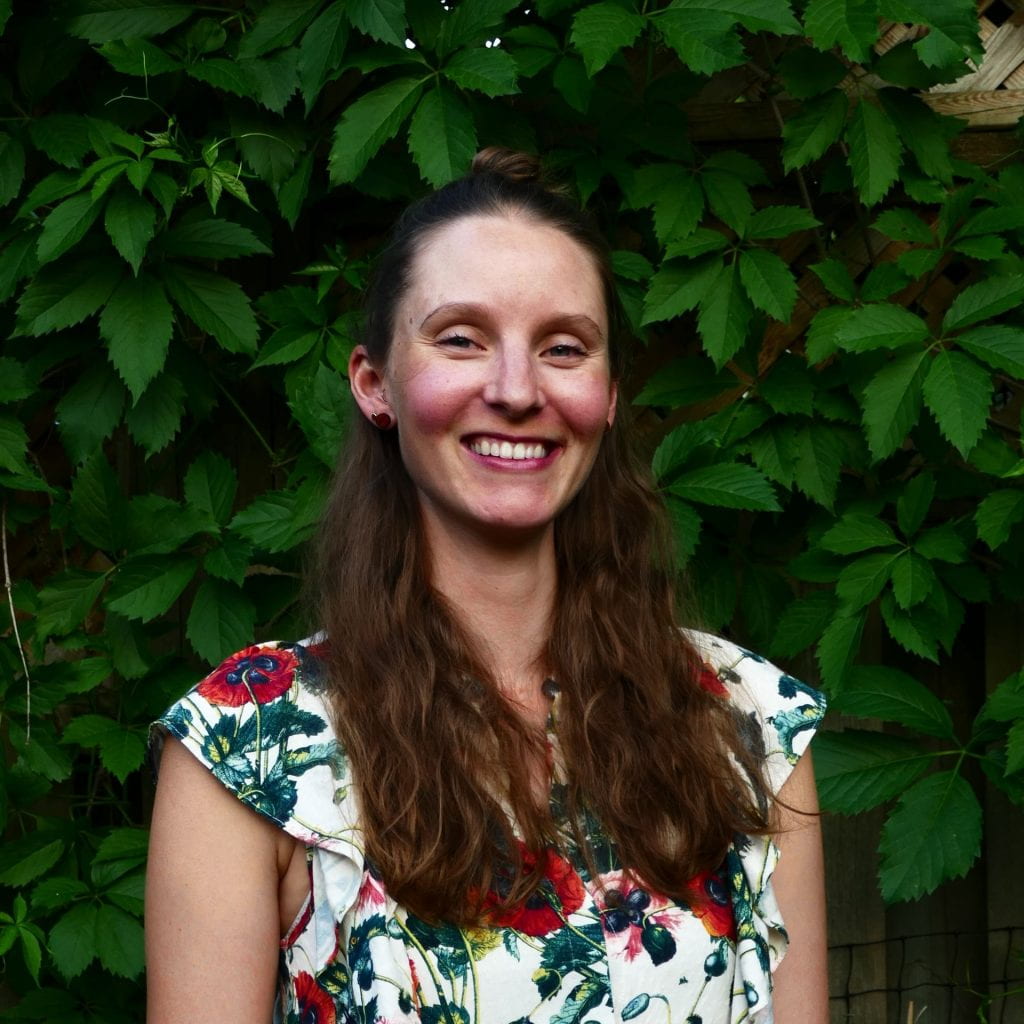
Lauren Van Patter
One Health, Multispecies Justice, and the Human-Animal Bond
Kim and Stu Lang Professor in Community and Shelter Medicine | Department of Clinical Studies
Ontario Veterinary College | University of Guelph
March 24, 2022 | 1-2 PM EST | Watch the talk!

Brandon Gilroyed
Evaluating Livestock Mortality Management Techniques using a One Health Approach
Associate Professor | School of Environmental Sciences
Ontario Agricultural College | University of Guelph
March 31, 2022 | 1-2 PM EST | Watch the talk!

Hwan-Suk Chris Choi
An Inconvenient Truth: The Darker Side of Tourism
Interim Director and Professor | Department of Hospitality, Food and Tourism Management
Gordon S. Lang School of Business and Economics | University of Guelph
FALL 2021
September 22, 2021 | 12-1 PM EST | Watch the talk!
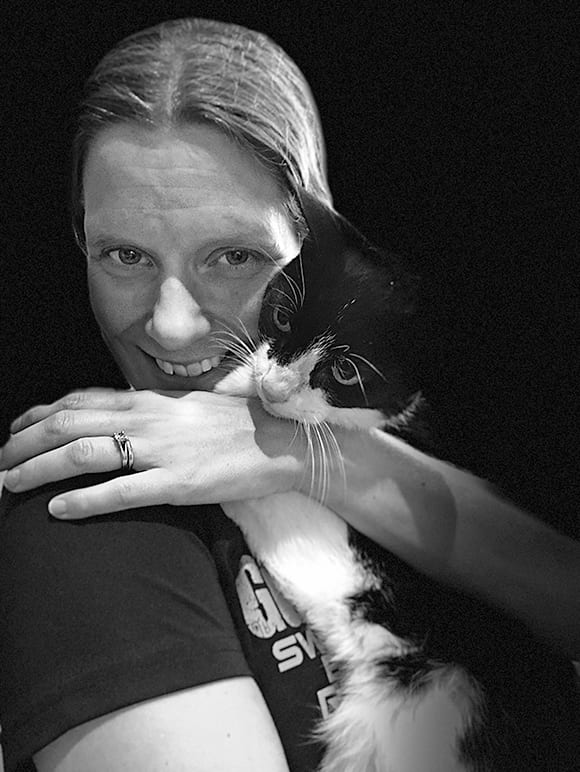
Maureen Anderson
One Health and Wild What? Pigs (Yes, Pigs)
DVM, DVSc, PhD, DACVIM
Lead Veterinarian
Animal Health and Welfare Veterinary Science Unit
Ontario Ministry of Agriculture, Food and Rural Affairs
October 6, 2021 | 12-1 PM EST | Watch the talk!
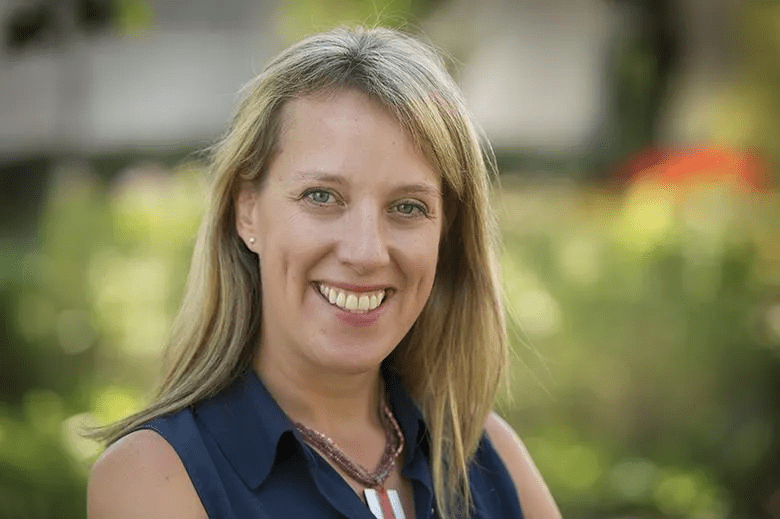
Kari Dunfield
Exploring the Role of Soil Health in One Health
Professor and Canada Research Chair
Environmental Microbiology of Agro-Ecosystems
School of Environmental Sciences | University of Guelph
October 19, 2021 | 12-1 PM EST | Watch the talk!
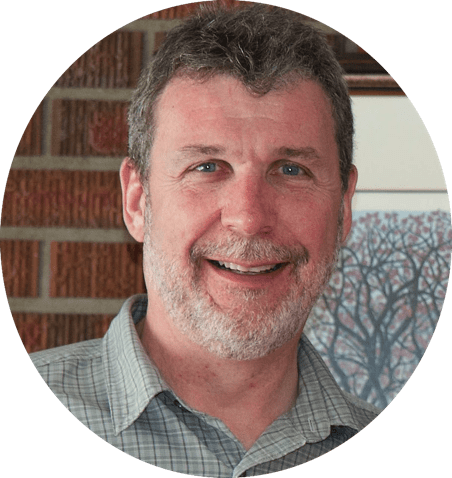
Brian Husband
Crops, native ecosystems and food system sustainability – is this One Health?
Professor and Associate Dean (Academic) | Department of Integrative Biology
College of Biological Science | University of Guelph
November 3, 2021 | 12-1 PM EST | Watch the talk!
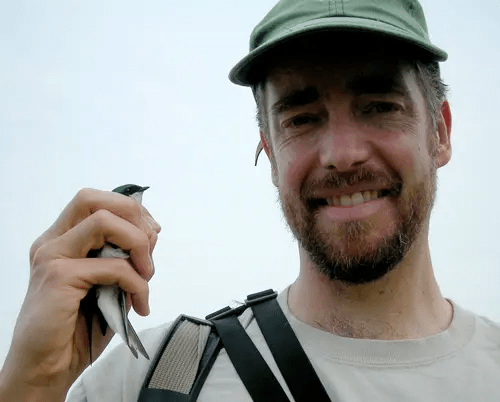
Chris Earley
Connecting to Nature: It’s good for you and the planet
Interpretive Biologist and Education Coordinator
The Arboretum | University of Guelph
November 16, 2021 | 12-1 PM EST | Watch the talk!
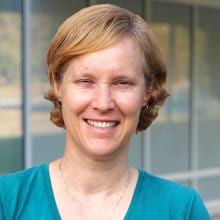
Claire Jardine
Wildlife and One Health
Regional Director Canadian Wildlife Health Cooperative (CWHC) ON/NU
Associate Professor | Department of Pathobiology
Ontario Veterinary College | University of Guelph
WINTER 2021
January 29, 2021
Dr. Cate Dewey “Pigs, Poverty, and Epilepsy”
U of G, OVC, Population Medicine
February 12, 2021
Dr. Emily Denstedt “Wildlife, Wild places, and Spillover: Insights from the field”
Wildlife Conservation Society in Laos
February 26, 2021
Dr. Kathryn Fair “Physical Distancing, School/Workplace Closure, & Covid 19 in 2020: how many lives did we save?”
U of G, OAC, Environmental Sciences
March 11, 2021
Dr. Daniel Gillis “One Year, One Health”
U of G, School of Computer Sciences
March 26,2021
Dr. Lawrence Goodridge “Salmonella Syst-OMICS: Applying the One Health Approach for Improved Food Safety”
U of G, Dept. of Food Science
FALL 2020
September 2020
Dr. Theresa Bernardo & Dr. Deborah Stacey “The Global Burden of Animal Diseases: A New Addition to One Health Data Resources”
U of G, OVC, Population Medicine & U of G, CEPS, Computer Science
October 2020
Dr. Gus Skorburg “Philosophical Perspectives on One Health”
U of G, COA, Philosophy
October 2020
Dr. Robert Hanner “The Role of DNA Barcoding and Environmental DNA-Based Biomonitoring in Support of a One Health Agenda”
U of G, CBS, Integrative Biology
November 2020
Dr. Jennifer Provencher “Plastic Pollution and Wildlife Health”
Environment and Climate Change Canada, Science and Technology Branch, Ecotoxicology and Wildlife Health Division
November 2020 Dr. Graham Taylor “How Experimental Psychology Can Help Explain Artificial Intelligence”
U of G, CEPS, Engineering
WINTER 2020
January 2020
Dr. Hellen Amuguni “Building a pandemic ready global workforce”
Tufts University, Cummings School of Veterinary Medicine
February 2020
Dr. Travis Steffens “We Are in This Together: Bringing an Anthropological Perspective to One Health Research in Madagascar”
U of G, CSAHS, Sociology and Anthropology
FALL 2019
November 2019
Dr. Francisco Olea-Popelka “One Health: Beyond Medicine”
Western University, Schulich School of Medicine & Dentistry
December 2019
Dr. Marc Habash “Application of the One Health Approach to Microbial Source Water Tracking”
U of G, OAC, School of Environmental Sciences



